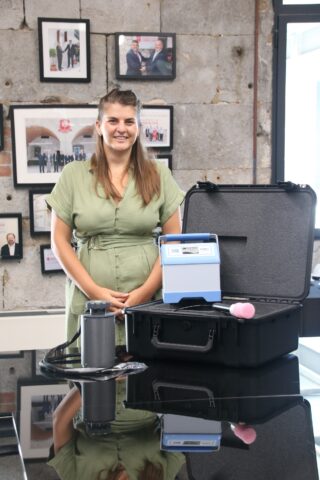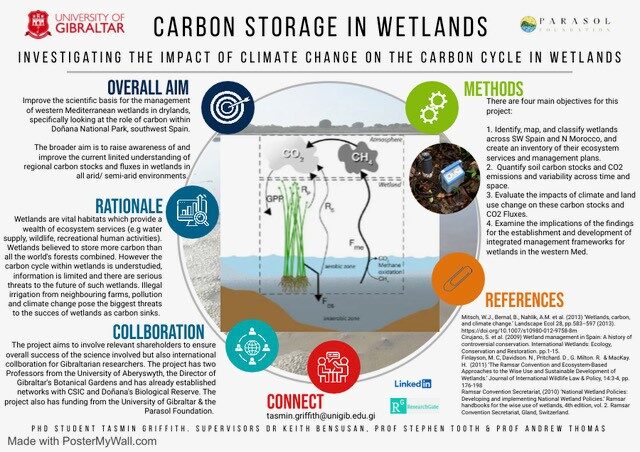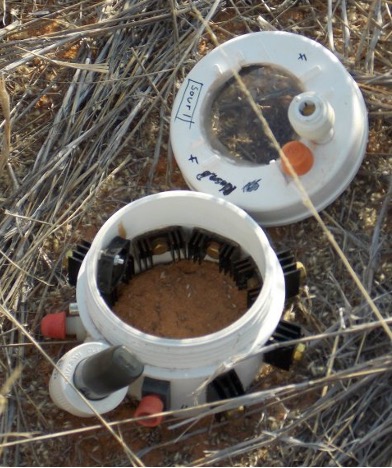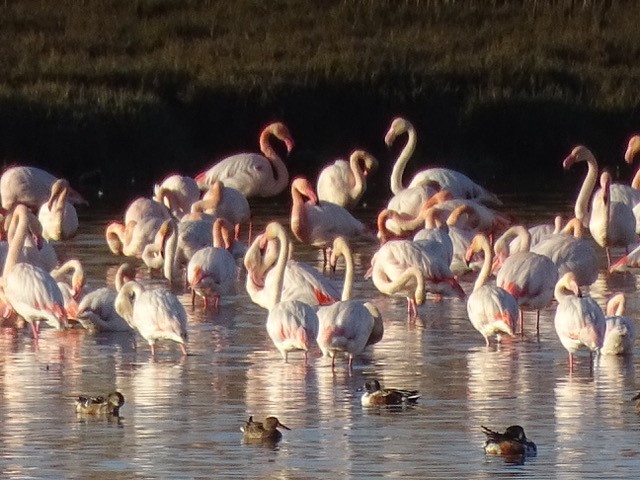PhD student receives vital equipment for carbon capture research
The Parasol Foundation has helped fund state-of-the-art equipment for Tasmin Griffith, a PhD student at the University of Gibraltar who is researching how much carbon is stored in wetlands in dry environments and released into the atmosphere in the form of carbon dioxide.
Ms Griffith is currently leading a best-in-class field trial at Doñana National Park, in southern Spain.
Soil carbon losses are the main cause of atmospheric CO2 and generate annual emissions ten times that of fossil fuels.

Up till now, Ms Griffith has had to use home-made chambers made from PVC plumbing supplies.
The home-made devices are innovative but not ideal, and she did all her calculations by hand which was time-consuming.
The donated kit is compact, portable, precise and allows results to be easily compared with world-wide research.
The equipment includes an infra-red gas analyser, integrated soil respiration chamber and soil moisture probe.
This compact and portable device will help Ms Griffith establish how much carbon is stored in wetland environments and, from this knowledge, learn best how to manage sites which may be able to ‘absorb’ carbon and mitigate climate change.
It can take fast accurate soil readings which can be analysed in the field in real time or in a lab setting (In a laboratory, soils can be ‘manipulated’ for example by increasing the temperature or moisture content, to create potential future climate change scenarios).
“This new equipment will make such a difference,” Ms Griffith said.
“We will be able to understand what is really going on in our soil, collect accurate data from the field and run tests in the lab to see if carbon can be stored rather than released.”
“I would like to thank The Parasol Foundation and University of Gibraltar for their kind generosity and their support for women in science.”
“I hope this project inspires young people to engage with our environment and the sciences”.
Her research studies the value of wetlands as carbon stores, which is poorly understood.
Wetlands, like Doñana National Park, cover approximately 6% of the Earth’s land surface, or 570million hectares, and it’s estimated that they store more carbon than the world’s forests combined.


If carbon can be trapped securely it would lead to lower carbon dioxide emissions, a major cause of global warming.
Ms Griffith’s research will help work out whether wetlands can store trapped carbon.
“Tasmin Griffith's research is an invaluable contribution to our understanding of carbon dynamics in wetland environments,” Dr Darren Fa, Director of Academic Programmes and Research at the University of Gibraltar said.
“The state-of-the-art equipment provided by The Parasol Foundation has opened new avenues for exploration, allowing us to delve deeper into the complexities of the carbon cycle and its impact on climate change.”
“Through Tasmin's pioneering efforts, we hope to unlock nature's potential to combat global warming and inspire future generations to engage with the natural world and scientific inquiry.”
She is working with Professor Andrew Thomas and Professor Stephen Tooth, both leading environmental scientists at the University of Aberystwyth.
In Gibraltar, Dr Keith Bensusan, Director of the Alameda Botanical Gardens is also a lead supervisor of the project.
Her research is also linked into the team at Doñana Biological Reserve RBD and ICTS, which may lead to more exciting research in the future.
Their team have helped with understanding the landscape which is home to threatened bird species and over 500,000 water fowl.
“Supporting innovation is one of my interests and I founded The Parasol Foundation to help women and girls follow their dreams and create a lasting impact,” Ruth Monicka Parasol said.
“Tasmin’s work is exciting and is vital to help us understand the potential of the nature that surrounds us to combat global warming.”










